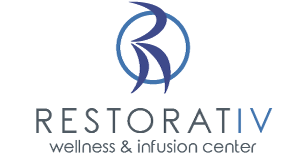Ketamine clinics are opening all over the United States, and the medication is being researched for many possible applications. In the earlier parts of the century, ketamine was known for its reputation as a psychedelic drug for recreational use, as well as, an anesthetic for medical operations. More recent research has shown positive evidence of ketamine’s capability to help relieve symptoms and treat various mental health disorders, like depression, anxiety and chronic pain conditions. The way patients have responded to the drug has been unbelievable—it acts in the brain, helping to rebuild healthy neural connections.
At RestoratIV Wellness, we have personally seen 70% of our patients experience rapid and highly effective relief to their depression and chronic pain symptoms. There is no doubt in our mind that ketamine will continue to change many people’s lives, for the better! However, despite all of the positive press and scientific support behind ketamine’s practical and medical applications, it still brings about a large quantity of misguided information. A lot of the scrutiny comes from these misconceptions and myths.
Below, we will clarify a few facts about ketamine and bust some of these common myths wide open.
Myth 1: Ketamine is a horse tranquilizer, it can’t be safe for human use:
First, this is simple: ketamine is listed on the World Health Organization’s Model List of Essential Medicines because of its highly effective, rapid analgesic results, along with its safety and affordability. Plus, it was tested and used on humans long before the drug was ever transferred for its use as an equine sedative.
Myth 2: Another FDA “Breakthrough” drug that won’t pan out:
Referencing the abundance of research on the internet is all you need to do to see how ketamine is evolving and continuing to change lives for the better. Ketamine has not only proved useful for the treatment of chronic pain and depression, but it shows the budding possibility to be used as a vaccine to protect emergency responders from developing PTSD, for the treatment of PTSD, and to help those who are suffering from addiction. There is a new wave of psychiatric treatment rolling in, and ketamine is at its crest.
Myth 3: Ketamine is extremely addictive:
False. Despite the small chance of becoming psychologically dependent on the substance if used recreationally, as treatment it is highly regulated. Ketamine infusions are given under medical supervision in low dosages and is not physically addictive. It is also not generally permitted as a take home drug, to even further minimize the odds of abuse.
Myth 4: Ketamine is a just a ploy to make big corporate pharmacy companies a profit:
This one is quite simple, the patent for ketamine expired almost 50 years ago making it financially useless for extreme profit. This is one of the major problems ketamine faces for public accessibility. The research funding for ketamine is lacking, because there is no hope for big profit. However, studies are still being conducted and many companies are looking at new ways for ketamine to be used as an antidepressant. In fact, several new drugs mimicking the chemical makeup of ketamine have been fast-tracked for approval by the FDA, one of which received approval last week!
We hope this information helps clear up some misconceptions about ketamine for depression and chronic pain. At the end of the day, ketamine changes lives and helps people who struggle with depression, chronic pain and other mental health disorders to get back to living a life they love. Ketamine gives hope to this who cannot seem to find reasons for getting up in the morning—it is truly revolutionary.
Contact RestoratIV Wellness
If you are interested in learning more about ketamine infusions, and to discover if you are candidate for this incredible treatment, please contact our professional staff. We are here to help and connect you with those who can help you start your journey towards wellness.


Recent Comments